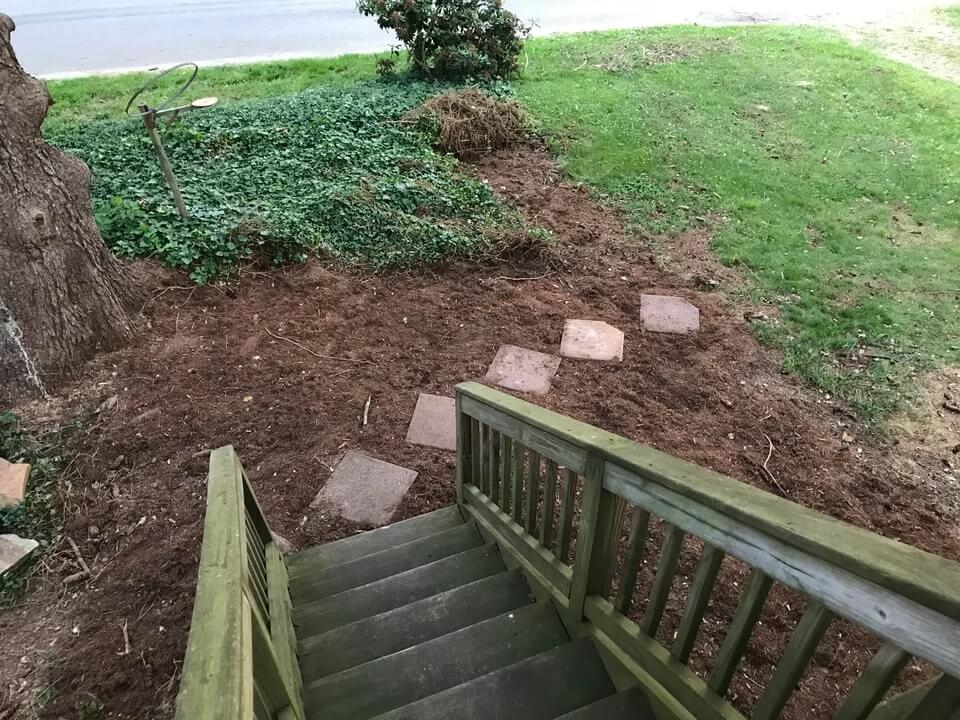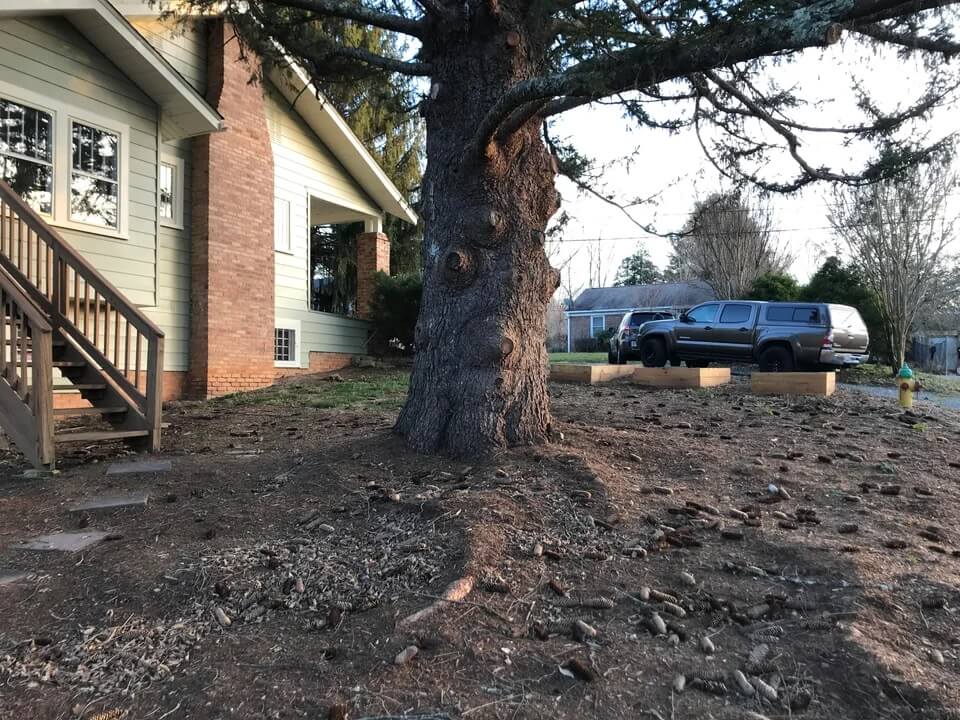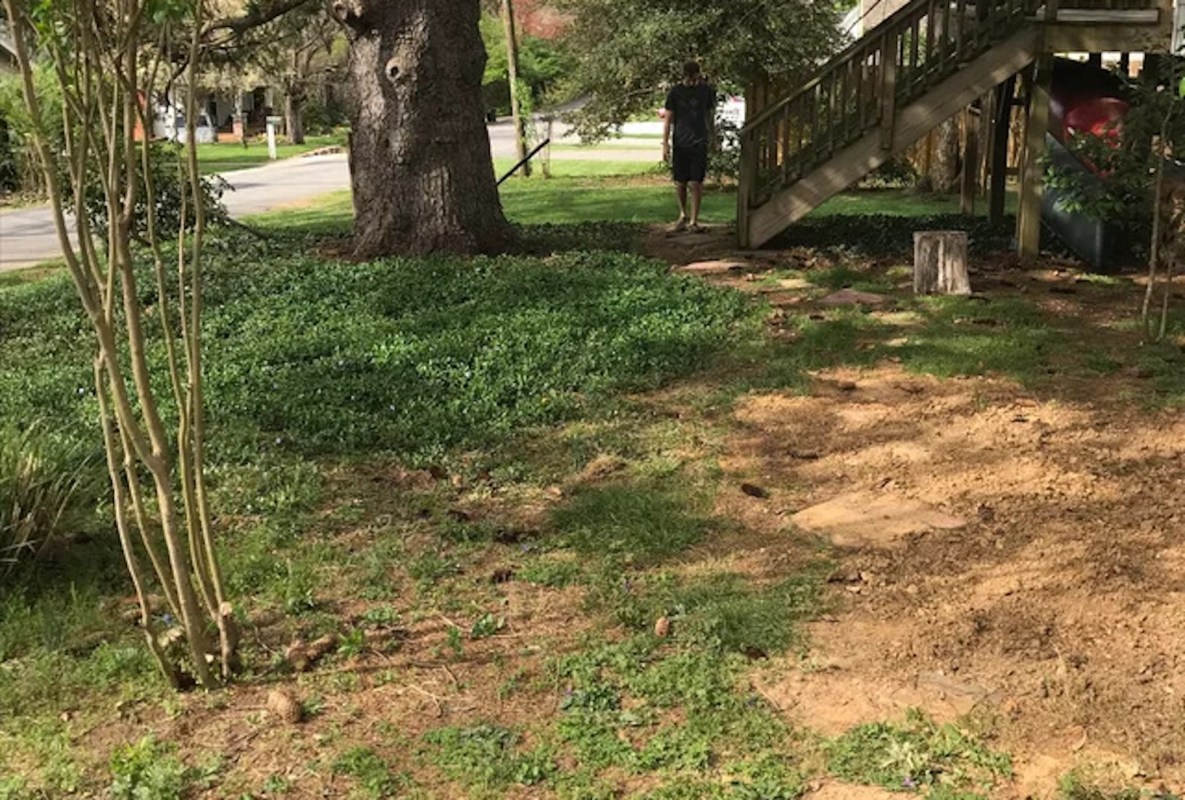A new homeowner shared their victory over an invasive species.
In the r/gardening thread, a Redditor showed five before-and-after photos of the project, which resulted in an amazing transformation.


"We bought our first house last spring and the English Ivy around this huge Norway Spruce was the first thing that had to go," they wrote. "No easy way out with this aggressive plant."
The poster also noted they wouldn't plant grass, which is a drain on resources — water and money — and can contribute to the warming of the planet via gas-powered maintenance equipment and the pollution of the environment via pesticides and fertilizers.
There are plenty of reasons to rewild your yard instead.
"Turf grass … provides virtually no habitat for pollinators and other animals and plants that make up a healthy, diverse ecosystem," the Natural Resources Defense Council wrote. "In fact, these lawns can do substantial harm to the environment and to both vertebrates and insects."
The NRDC noted wildlife can ingest berries and seeds that were treated with pesticides, and rainwater runoff with harmful chemicals can infect streams, rivers, lakes, and oceans, poisoning aquatic animals and the environment. Anyone who swims, surfs, or eats seafood may be at risk of suffering from the contamination.
Green spaces full of native plants and managed without toxins can help ecosystems thrive and support local pollinators, prevent erosion, and reduce flooding.
Part of developing such gardens can include the removal of invasive species, which is vital work. English ivy is "one of the worst invasive species in America," according to TikToker and botanist Jessie Dickson, blocking out sunlight and impeding photosynthesis in trees.
Invasive species do damage because they aren't at the mercy of natural predators. They crowd out their competitors in the search for nutrients or sunshine and can disrupt thousands of years of evolution.
"Good work! English ivy is the devil! Lol!" one user wrote. "We just got property in Florida that we are feverishly removing ivys, wild muscadine grape vines and other wild tropical vines from, too! So much work!! But pay off is incredible. Especially when you save a tree or two from getting choked out."
Join our free newsletter for easy tips to save more, waste less, and help yourself while helping the planet.









